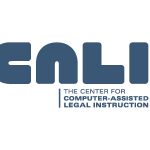For Immediate Release
Chicago, IL – December 10, 2018 – Today we announce the launch of a2j.org and a2jauthor.org. The “a2j” stands for Access To Justice. a2j.org is a brand new website where anyone in the world can host A2J Guided Interviews™ created at a2jauthor.org. Registration at a2jauthor.org is free. A2J Guided Interviews help self-representing litigants (SRLs also known as pro se litigants) fill out a legal form or work through a legal decision or provide other legal guidance.
A2J Guided Interviews are expert systems formatted as a decision tree of questions that collect information and branch the user through an interactive interview that results in a court form ready for printing and filing. A2J Guided Interviews have served over 5 million people in the past decade from legal aid and court websites.
The access to justice gap is immense. Over 50% of people eligible for legal aid cannot get it because there aren’t enough legal aid lawyers. In some jurisdictions, over 90% of the litigants are self-represented. Automated forms are not the entire solution, but they can be a valuable tool. CALI’s goal for this project is to provide a free service to automate those things that should be automated and allow lawyers more time to practice at the top of their license.
There are hundreds of small, legal processes that can be automated and there are 50 states, so there are thousands of projects for law schools, clinics, courts, legal aid, non-profits, and volunteers with appropriate subject matter expertise.
Access to justice is a core mission for CALI – a consortium of law schools. Legal education has a significant role to play. Legal process automation is a 21st-century law practice skill that is valuable for law students. We want to facilitate a culture of responsibility in the legal profession addressing the access to justice gap and that begins in law school. Our member law schools support and benefit from this project for its ability to provide experiential learning for law students in law school courses and make justice more accessible at the same time.
CALI has a track record of success with this access to justice…
1. A2J Author has been used to automate over 1000 court forms, legal processes, and intake systems.
2. A2J Author has been used over 5 million times in the past 10 years and is ADA compliant (WCAG 2.2 AA) and mobile friendly.
3. A2J Guided Interviews have received thousands of positive testimonials from the DIYForms court-based project in New York.
4. Successful projects in over a dozen law schools where A2J Author was integrated into a law school course.
Aspiring authors must register for an account at www.a2jauthor.org where they can create A2J Guided Interviews and publish them to a2j.org to make them available to the world. Free training videos are available at www.a2jauthor.org and our YouTube channel at youtube.com/a2jauthor. We also offer periodic live webinar training. Visit the website for more information.
CALI is the Center for Computer-Assisted Legal Instruction, a 501(c)(3) non-profit consortium of most US law schools that works at the intersection of legal education, technology and access to justice. CALI was incorporated in 1982 by the University of Minnesota School of Law and Harvard Law School. Follow CALI on Twitter at @caliorg. Follow A2J Author on Twitter at @a2jauthor.
CALI and Chicago-Kent College of Law launched the A2J Author project in 2004 as a result of a legal design project to study the access to justice problem in the United States.
CONTACTS
John Mayer is the Executive Director of CALI and has worked in legal education for over 30 years. He can be reached at jmayer@cali.org or followed on Twitter at @johnpmayer or 312-906-5307.
Jessica Frank is the A2J Project Manager and can be reached at jessica@cali.org and runs the @a2jauthor Twitter account.
LINKS REFERENCED
– www.cali.org – CALI website
– a2jauthor.org – Register to begin creating A2J Guided Interviews
– a2j.org – Website where A2J Guided Interviews are hosted
https://www.youtube.com/user/A2JAuthor/playlists – free training videos for A2J Author
– @caliorg – CALI’s official Twitter account
– @a2juthor – A2J Author official Twitter account
– www.nycourts.gov/ip/nya2j/diytestimonials.shtml – Testimonials about the DIYForms used at the New York State Courts (which uses A2J Author)
– https://www.cali.org/faq/15779 – Information about CALI membership.
– https://www.cali.org/content/members – List of current CALI members.
![]()











